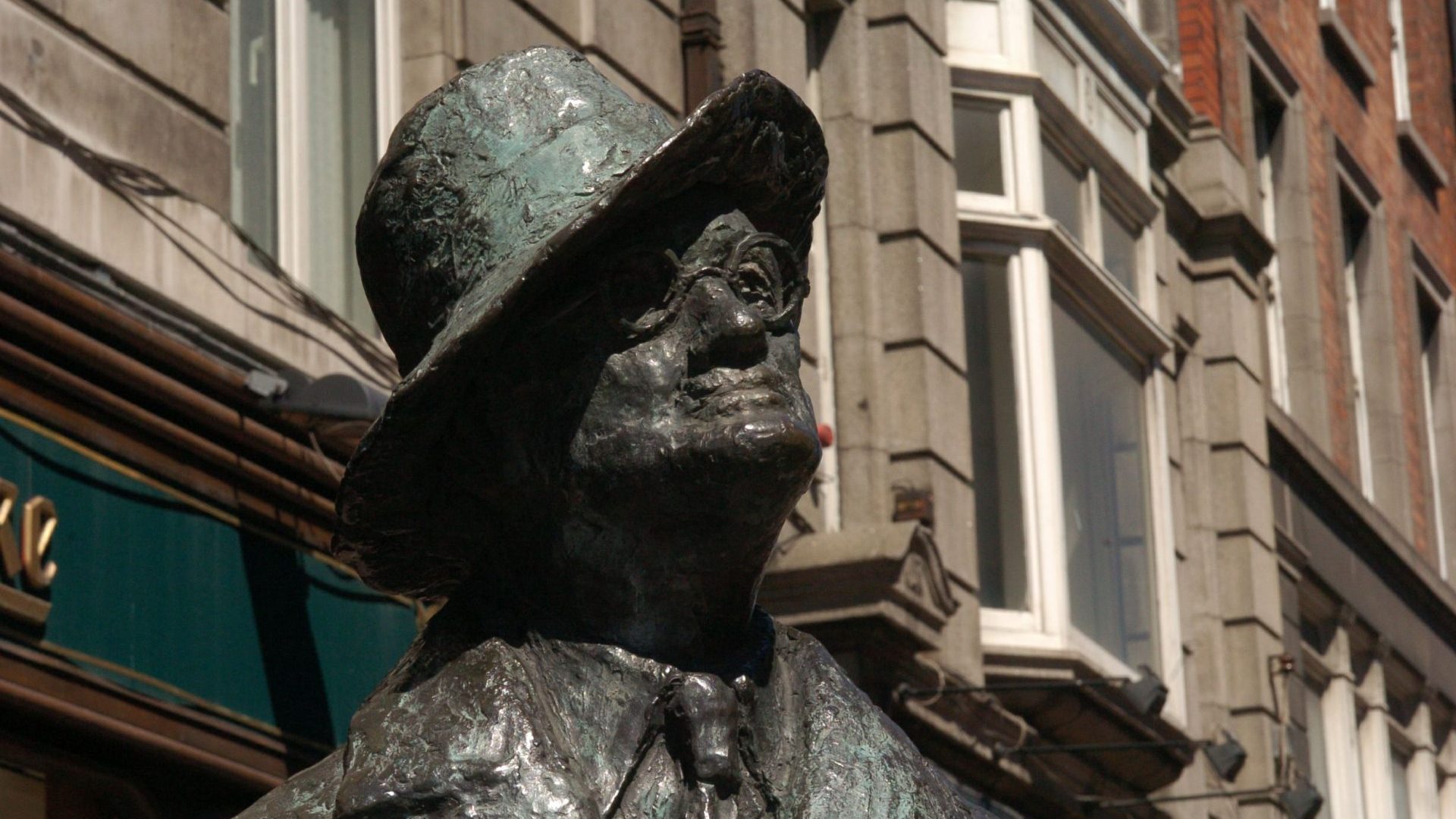It is a project arguably only matched in ambition by attempting to read the notoriously challenging novel – celebrating James Joyce’s Ulysses in an epic cultural programme spanning three years and 18 European cities.
ULYSSES European Odyssey, which runs until June 2024, stretches across cities from Athens to Zürich, taking in the likes of Berlin, Dublin and Marseille, marking last year’s 100th anniversary of the book, celebrating the modern city and highlighting the relevance of Joyce’s work.
It will also tackle the many challenges Europe faces, from the ongoing impact of the Covid pandemic to migration and the environment. Joyce wrote the novel across the continent at a time of dramatic upheaval and change, including the first world war and Spanish Flu epidemic.
“It’s probably a cliché to say that great art is timeless, but it’s also true, I think, to say that different generations engage in very different ways with great work,” says Liam Browne from the project’s lead partner ARTS OVER BORDERS Ireland. “And when it came to this project, we didn’t want to just mark the fact that Ulysses was 100 years old, we wanted to find a way to engage with contemporary Europe.”
Projects ongoing and happening later this year are indicative of the multidisciplinary nature of the programme and the diverseness of challenges tackled. In Istanbul until August Togetherness, which includes film events, street art and debates, focuses on LGBTIQA issues (in an event planned long before Recep Tayyip Erdoğan used his successful reelection campaign to vilify gay and trans people). In Vilnius until September three emerging artists are creating public art works exploring the Lithuanian capital’s Vilnelė river as a metaphor for the city in perpetual change and “a connector of different scenarios of future development of neighbourhoods”. Both are linked to episodes within Joyce’s book.
Browne’s colleague, Séan Doran, said they fixed on the pan-European nation of Ulysses when they set to work deciding how to tackle its centenary.
“Of course, in Ireland we knew it would be joyously,” he says. “However, we also knew how European this novel was and without Europe, inspirationally and literally, the novel wouldn’t be the novel as we know it today. Joyce gave it a subheading that many of us are not aware of – a tale of two races, the Irish and the Jews. His lead character, Leopold Bloom, was of Hungarian Jewish ancestry, Molly Bloom was born in Gibraltar.
“We also noted, though, usually the last words are ‘yes I said yes I will Yes’. But technically the last three words of the novel are three cities. Joyce put this in quite purposely: Trieste, Zürich, Paris, because that’s where he wrote the novel, between 1914 and 1922, about a city, Dublin.” Joyce lived and wrote in the Italian city from 1914 to 1915 and 1919, Zürich from 1915 to 1919 and the French capital from 1920 to 1922.
The epic three-year nature of the programme, Doran says, came because they viewed 2022 “not as an arrival point, as most anniversaries do, but as a departure point”.
Some cities chose themselves – Athens for the novel’s Homeric allusions, Copenhagen for Hamlet, the provenance of which Stephen argues about in the novel, Istanbul as Bosphorus is mentioned in Homer’s Odyssey as the location for the Wandering Rocks (Ulysses’ 10th episode). Others are slightly more tangential: Lugo, in Galicia, was chosen largely because it struck organisers Leopold Bloom’s famous gorgonzola cheese sandwich and glass of burgundy was essentially tapas. “We thought, we’ve got to get it over to Spain,” says Doran.
With the public events, there was only one stipulation for local organisers – “they had the artistic authority and freedom entirely for their own project, but they had to use public spaces,” says Doran. “Because this is what Joyce always did in the novel. In the library in episode nine, the cemetery in episode six, the hospital in episode 14 and so on.”
We are speaking in London, which Brexit means isn’t involved, despite the fact that Joyce remained officially British until his death in 1941 (the project is funded through an award from the European Commission’s Creative Europe Fund; Derry is involved through a link-up with Donegal).
“Well, I’d probably skirt around it,” Doran says, asked about Brexit’s impact. The succinctness is most un-Joycean.
ULYSSES European Odyssey takes place until June 2024. For more information go to ulysseseurope.eu











